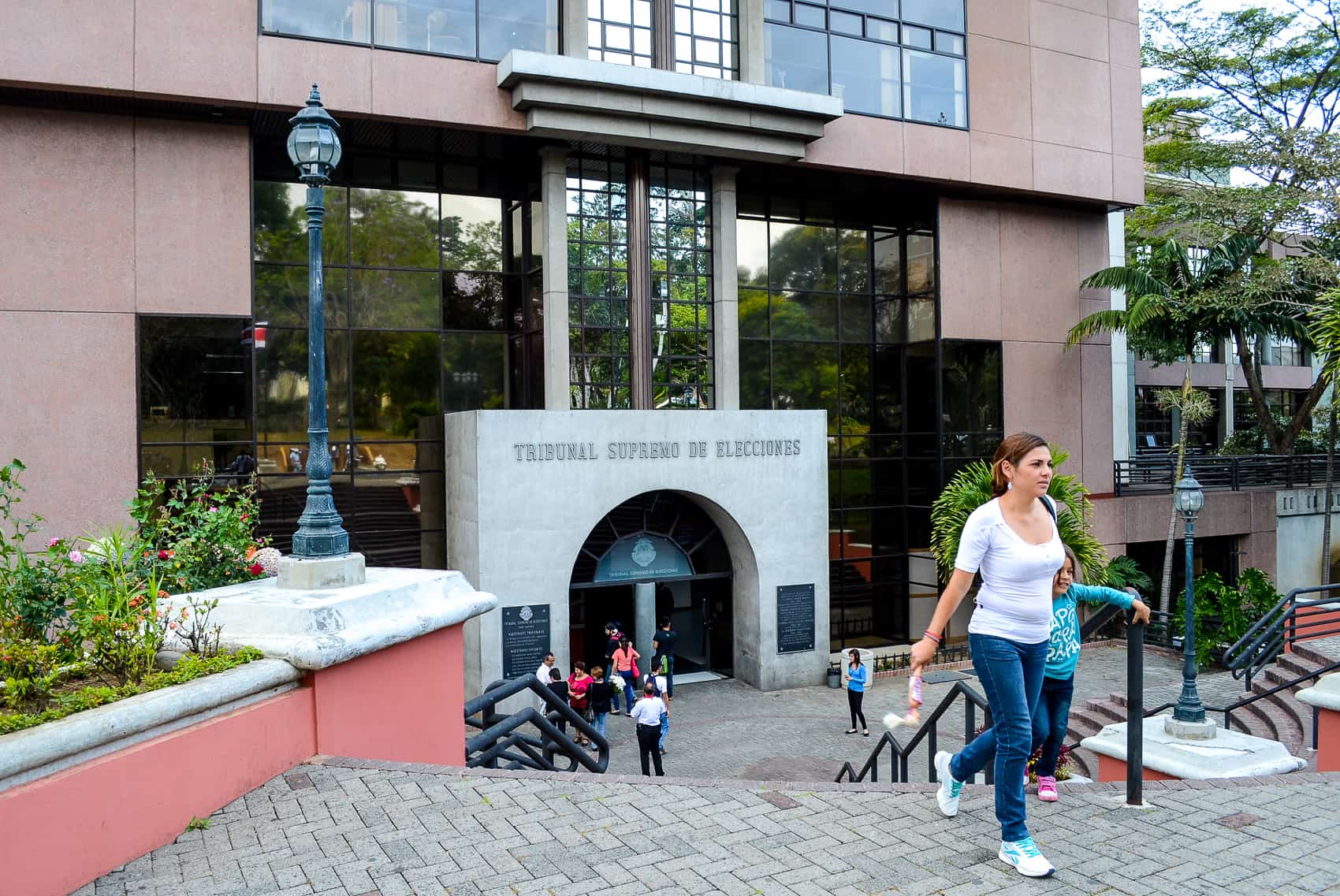The Supreme Elections Tribunal (TSE) ruled against the Costa Rican Evangelical Alliance Federation (FAEC) last week, finding that a paid editorial leading up to the Feb. 2 presidential election from the religious group restricted Ticos’ freedom to vote, according to a press release from the elections authority last Friday, Feb. 28.
Lawyer Yashín Castrillo, a gay-rights advocate who has filed several constitutional complaints over church and state issues, claimed that the federation violated Costa Rica’s ban on religious propaganda leading up to the elections when it took out a paid advertisement in the Jan. 27 edition of the daily La Nación. The paid content urged voters to cast their ballots according to their religious beliefs and not support parties or candidates who did not reflect the values taught in Pslams 139:13, Genesis 1:27, and Genesis 2:24, verses used by some to argue against abortion rights and same-sex marriage.
Article 136 of Costa Rica’s Elections Code bans all campaign propaganda three days before Election Day, including religious material, that encourages or discourages voters from supporting a given party. While the editorial was published six days before the elections, the TSE found that it presented a “threat” to the free exercise of the vote.
“It establishes a link between voting for those who promote abortion and rights for same-sex couples and a condemnation of a religious nature of voters who support these kinds of policies,” Castrillo told The Tico Times.
The Tico Times reached out to the Evangelical Alliance for comment Monday but had not received a response by press time. This post will be updated with any response.
According to court documents, FAEC representative Rigoberto Vega argued that freedom of expression granted the federation, composed of 174 religious groups, the right to publish the paid content, and that its language was not coercive and did not support any specific candidate. Vega acknowledged that the message communicated “constitutional and legal principles in support of life and the family” that were in line with the Judeo-Christian convictions of evangelicals.
The TSE, however, noted that candidates had specifically addressed both same-sex marriage and abortion rights in the days leading up to the federation’s paid advertisement, and that suggesting voters follow their “religious beliefs” constituted support for one candidate over another. National Liberation Party candidate Johnny Araya, who opposes abortion rights, has taken pains to point out his rival, Luis Guillermo Solís of the Citizen Action Party, supported access to abortion in the event of rape.
Recommended: Abortion and politics on the campaign trail
The TSE acknowledged the right to free expression, but said that right could be curtailed in some situations, including the moratorium on campaign and electoral advertisement leading up to the election:
“This Tribunal finds that the message – distributed on a national level six days before the elections – finely weaves active political-electoral terms and religious motives or beliefs that possess the conditions to alter political freedom by directing voting toward groups whose positions on ‘abortion’ and ‘marriage between people of the same sex’ are consistent with biblical teachings.”
Castrillo told The Tico Times he hoped the ruling would lead to an election law that bans religious groups from taking out paid ads and meeting with presidential candidates before elections. Both Araya and Solís have met with the Evangelical Alliance during the runoff campaign.
“These religious groups are using politics for their religious ends. This doesn’t come for free. Politicians also are using religion for their own ends. What’s the advantage for a politician to meet with religious leaders? To obtain legitimacy, especially in a catholic country like ours. … Religion and politics are in bed together and it should end,” Castrillo said.
On Feb. 28, the same day the TSE released its ruling, the alliance posted a message on its Facebook page saying that none of its meetings with the candidates resulted in any official endorsement by the Christian organization. One paragraph in the statement hinted at the TSE ruling, saying:
“The FAEC respects and supports the right of each person to personally and privately decide their vote but, at the same time, [the FAEC] does not waive its right to engage and take a position on subjects of national interest, above all those that could negatively affect the institutions of our country.”
The TSE ordered the federation to refrain from publishing similar material and to pay the legal fees associated with the case. The tribunal added that it would pass its finding on to an elections investigation, which could levy an additional fee on the Christian group.






